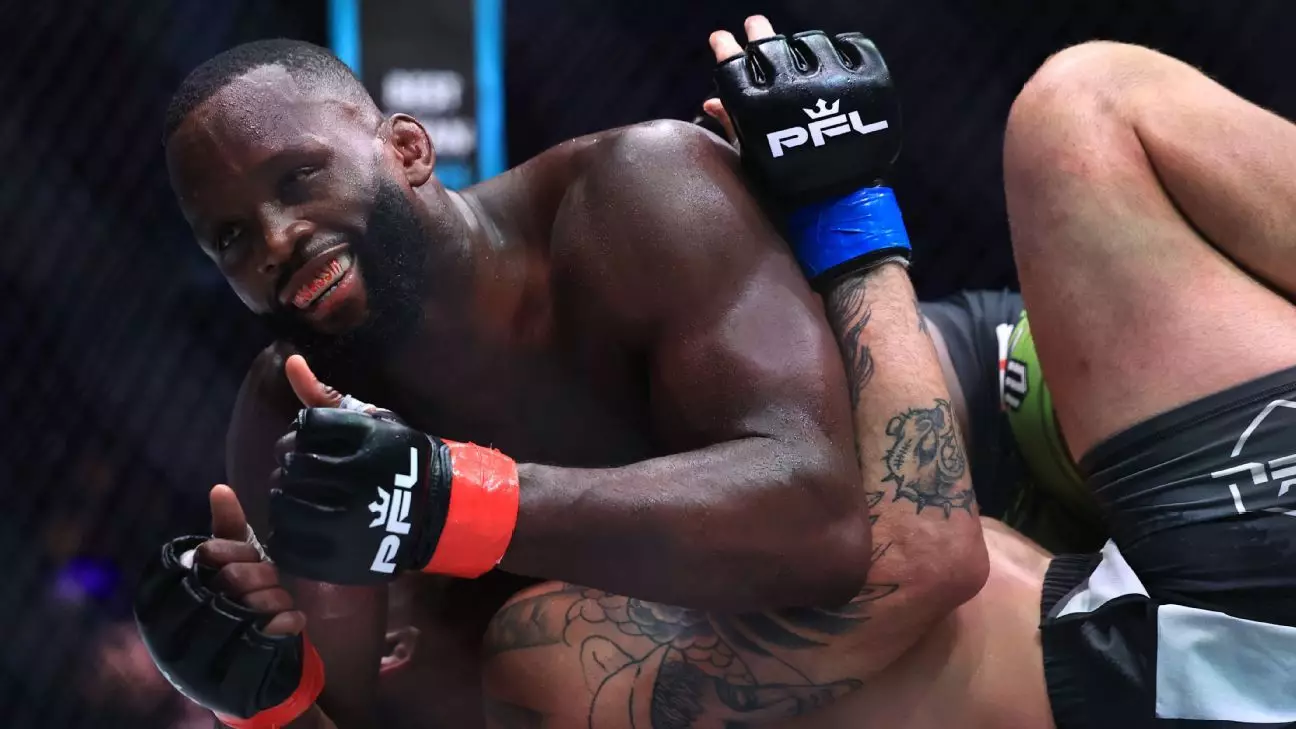The 2025 Professional Fighters League (PFL) season concludes in what can only be described as a pivotal moment for mixed martial arts enthusiasts. While titles and trophies are on the line, the true value of these finals extends beyond the monetary reward or belt. They symbolize a fighter’s resilience, adaptability, and readiness to leave a lasting mark on the sport. These bouts serve as a barometer, measuring not just skill but also mental toughness, strategic evolution, and the ability to perform under intense pressure.
In particular, the heavyweight and light heavyweight finals are set to redefine careers, bringing veteran experience face-to-face with emerging talent. The stakes are undeniably high, but so is the potential for groundbreaking moments that can elevate fighters from contenders to legends. The PFL’s commitment to offering a platform for fighters to showcase their full potential makes this event a significant chapter in MMA history—not merely a tournament conclusion.
Debunking the Illusions of Experience and Youth
When analyzing the two finalists in the heavyweight division—Oleg Popov and Alexander Romanov—it becomes evident that experience and fresh momentum are often misunderstood metrics of eventual victory. Popov’s history of fights—particularly his prior run in the PFL—gives him an undeniable edge. Having experienced the brutal reality of a championship fight, Popov understands what it takes to navigate the pressure cooker environment. His resilience is backed by a history of reigning supreme in the distance, and his past failure doesn’t define him but refines his approach.
Romanov, on the other hand, embodies youthful energy and an aggressive, finisher’s mindset. His record boasts many finishes—highlighting a style that’s designed to end fights quickly and decisively. Yet, the assumption that Romanov simply needs to overpower Popov might be an oversimplification. His limited experience in the finals scene often fuels debate about whether youth alone can carry him through. What’s far more intriguing is how Romanov’s style will adapt against a seasoned tactician like Popov, especially if the fight becomes a test of wrestling versus endurance.
In this dynamic, the ultimate power lies not solely with the veteran but with the fighter who can adapt, maintain composure, and capitalize on the fleeting moments of vulnerability. Popov’s previous exposure to high-stakes fight environments might just tip the scales by giving him a mental edge, foreshadowing that experience often outranks raw aggression in championship moments.
The Strategic Nuances of Edwards vs. Rosta: Fights Within the Fight
The middleweight showdown between Fabian Edwards and Dalton Rosta is not merely a clash of two warriors but a chess match layered with psychological warfare. Edwards, with two past title challenges and a wealth of championship experience, sees this as a defining moment to stamp his authority. His journey through the Bellator ranks has equipped him with a perspective that not many in this tournament possess: understanding what it truly takes to win under the spotlight.
Rosta’s undefeated record, with only a solitary decision loss on paper, belies his true competitive nature. His recent victories reveal a fighter who is confident, tenacious, and capable of executing strategies that frustrate even the most seasoned opponents. Rosta’s assertion that he is better than his previous loss suggests a fighter who learns, adapts, and is eager to rewrite his narrative—traits that could forge a new star in the league.
What makes this fight compelling isn’t just the individual skills but the mentality behind them. Edwards may hold the edge in championship familiarity, but Rosta’s relentless drive makes him unpredictable. If the fight turns into a battle of wills and strategies, it becomes a case study of whether experience or youthful ambition prevails—a true test of MMA’s fundamental principles.
The Role of Outside Influences and Personal Relationships
Another layer adding complexity to these finals is the influence of mentorship, relationships, and personal connections. Popov’s association with Fedor Emelianenko, arguably the greatest heavyweight of all time, hints at a deeper strategic preparation. Having a legend in your corner not only offers technical guidance but also instills confidence that can be pivotal when the cage door closes.
Similarly, the camaraderie and familiarity between Rosta and Eblen (another top contender linked to Edwards) add a psychological dimension that could sway the outcome. The fighters’ knowledge of each other’s styles, combined with personal stakes involving friends and training partners, elevates these bouts beyond pure physical competition. It becomes a battle of mental fortitude, immense preparation, and strategic deception.
The reality is, in MMA, the mental game often eclipses raw talent. The presence of legendary mentors and personal rivalries injects emotional energy into these finals, which can be harnessed or sabotaged. Popov’s acknowledgment of Fedor’s influence underscores how deeply personal relationships can motivate or pressure fighters when they face their most significant challenges.
What Sets These Fights Apart from Ordinary MMA Matches
What truly distinguishes the 2025 PFL finals from standard MMA events is the convergence of experience, youth, personal stakes, and strategy

